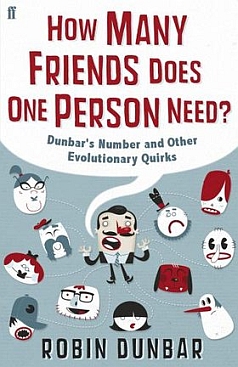- HOME
- INTRO TO THE FORUM
- USE AND MISUSE
- BADLY WRITTEN, BADLY SPOKEN
- GETTING
TO KNOW ENGLISH - PREPARING FOR ENGLISH PROFICIENCY TESTS
- GOING DEEPER INTO ENGLISH
- YOU ASKED ME THIS QUESTION
- EDUCATION AND TEACHING FORUM
- ADVICE AND DISSENT
- MY MEDIA ENGLISH WATCH
- STUDENTS' SOUNDING BOARD
- LANGUAGE HUMOR AT ITS FINEST
- THE LOUNGE
- NOTABLE WORKS BY OUR VERY OWN
- ESSAYS BY JOSE CARILLO
- Long Noun Forms Make Sentences Exasperatingly Difficult To Grasp
- Good Conversationalists Phrase Their Tag Questions With Finesse
- The Pronoun “None” Can Mean Either “Not One” Or “Not Any”
- A Rather Curious State Of Affairs In The Grammar Of “Do”-Questions
- Why I Consistently Use The Serial Comma
- Misuse Of “Lie” And “Lay” Punctures Many Writers’ Command Of English
- ABOUT JOSE CARILLO
- READINGS ABOUT LANGUAGE
- TIME OUT FROM ENGLISH GRAMMAR
- NEWS AND COMMENTARY
- BOOKSHOP
- ARCHIVES
Click here to recommend us!
TIME OUT FROM ENGLISH GRAMMAR
This section features wide-ranging, thought-provoking articles in English on any subject under the sun. Its objective is to present new, mind-changing ideas as well as to show to serious students of English how the various tools of the language can be felicitously harnessed to report a momentous or life-changing finding or event, to espouse or oppose an idea, or to express a deeply felt view about the world around us.
The outstanding English-language expositions to be featured here will mostly be presented through links to the websites that carry them. To put a particular work in better context, links to critiques, biographical sketches, and various other material about the author and his or her works will usually be also provided.
Scientist says 150 the most number of friends to comfortably have
Modern research on human evolution strongly suggests that kin relations and social relations matter greatly to human survival, and that the wider kin and social network one has, the stronger will be one's competitive edge in the game of life. But in his book How Many Friends Does One Person Need? (Harvard University Press, 312 pages), Robin Dunbar, an evolutionary biologist cum anthropologist, contends—among many other provocative ideas and groundbreaking findings in evolutionary theory—that there’s a point at which a further widening of one’s kin and social networks becomes counterproductive. Indeed, he has come with what he calls “Dunbar’s Number,” 150, which he says is the maximum number of acquaintances that the human mind can comfortably cope with in life—no matter what Facebook says about the great satisfaction to be derived from being able to collect several hundreds of friends online.

Says Dunbar of this magic number: “The number 150 really refers to those people with whom you have a personalized relationship, one that is reciprocal and based around general obligations of trust and reciprocity. If you asked them to do a favor, they would be more likely to say yes than those outside the 150.”
Dunbar explains that he came up with this number by extrapolating to humans from a relationship between brain size and social group size that he had discovered in monkeys and apes. “The number does not seem to change with social or ecological context,” he says, “but what does change is whether everyone in your circle lives in the same place (as in rural hilltop communities) or is dispersed across the whole country (as is now more typically the case for modern city dwellers).”
In a review of How Many Friends Does One Person Need? in the Los Angeles Review of Books, Michele Pridmore-Brown, a history scholar at the University of California in Berkeley, says: “Dunbar shows that, if we go far enough back in our family trees, we are all the product of a tangled skein of heroes and villains, of conquering populations and conquered ones, of dominant and minority races, of in-groups and out-groups. Whether we as individuals call ourselves one or the other is often just a matter of how far back in time we set our stakes combined with the limits of our instruments for probing ourselves. Knowledge such as this may well be the only way out of the ancestral cave.”
Read Michele Pridmore-Brown’s “Social Darwinism” in the Los Angeles Review of Books now!
Read an interview of Robin Dunbar about his book in the University of Oxford website now!
ABOUT THE AUTHOR:
Robin Dunbar is currently Professor of Evolutionary Anthropology at Oxford and a Fellow of Magdalen College. His principal research interest is the evolution of sociality. He was elected a Fellow of the British Academy in 1998. His previous books include The Trouble with Science (1995), Grooming, Gossip and the Evolution of Language (1998), and The Human Story (2004).







